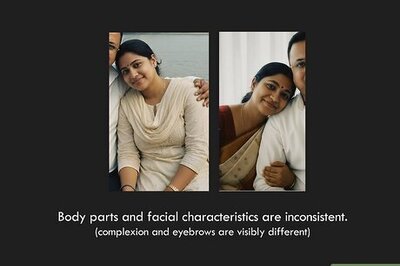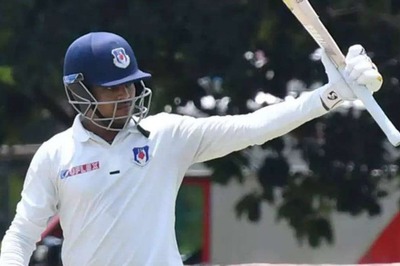
views
HYDERABAD: A guided tour of Unnava Laxmi Narayana’s ‘Malapalli’ and a taste of cynicism through Rachakonda Viswanatha Sastry’s ‘Aaru Saara Kathalu’ (Six stories on arrack) marked the second day of the national seminar on law and literature in the city. Socialism and class struggle as captured in literary works and machinations to censor art depicting real-life situations formed the essence of the discourse.The issue of censorship on literature and play-acting brought different perspectives. Noted Gujarati playwright and activist Saroop Dhruv observed that it is easier to censor theatre than movies. “Staging a play requires the script to be submitted in advance. This is something films don’t go through. The experience is similar to having a foetus aborted before it takes shape,” said Saroop whose plays were targeted for critiquing contemporary issues, from communalism to displacement of slum-dwellers in the name of urban beautification in ‘Suno Nadi Kya Kehti Hai’.Wielding censorship on women musicians by centres of power — a largely male dominated area — was brought out by publisher and Thumri artist, Vidya Rao. The struggle of workers, marginalised classes and agricultural laborers in Andhra pradesh were covered in separate sessions by writer and filmmaker Kutumba Rao and Sudhakar’s paper on Ra Vi Sastry’s portrayal of the rot in judicial system. The censorship on ‘Malapali’ in pre-independent India was discussed in detail by Kutumba Rao whose recitation of Sri Sri’s rebel cry in ‘Maro Prapancham’ brought alive the struggle of the worker.In the contemporary context, the legalese employed courts was portrayed in an anecdotal evidence by Suneetha Rani, professor at University of Hyderabad. The Tollywood movie ‘Leader’ which borrows from the dynasty politics in the state was presented through a paper by Sam Gundimeda which drew parallels between the case fought by K.G Kannabiran and Balagopal against the killings in Karamchedu and the cinematic portrayal of a warped sense of extra-judicial justice.




















Comments
0 comment